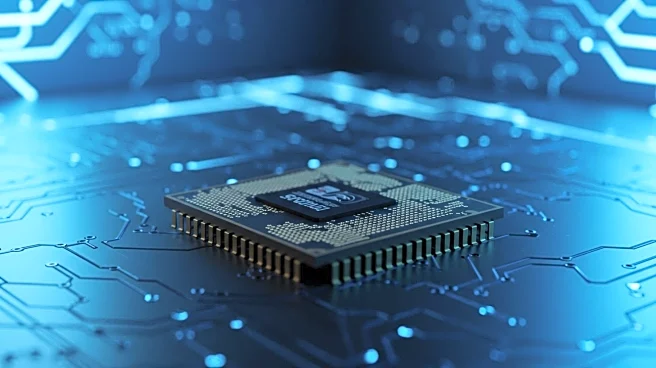What is the story about?
What's Happening?
Intel is reportedly in discussions with the U.S. government regarding potential investment support aimed at accelerating its manufacturing and foundry expansion. This development comes amidst Intel's recent announcement of a 15% workforce reduction following its Q2 earnings report, which initially led to a rise in stock prices but was followed by a 5% drop in premarket trading. The potential government stake could provide Intel with cheaper capital and preferential treatment for government contracts, offering a significant boost to its operations. This move is part of a broader strategy to enhance Intel's competitive edge in the rapidly evolving AI chip market, where rivals like Nvidia and AMD are making significant strides.
Why It's Important?
The potential investment from the U.S. government could have substantial implications for Intel and the broader semiconductor industry. By securing cheaper capital and preferential government contracts, Intel could stabilize its manufacturing facilities and expand its foundry capabilities, which are crucial for maintaining competitiveness in the AI chip market. This could also influence the dynamics of the industry, as Intel's enhanced capabilities might challenge Nvidia's dominance and AMD's growing presence. For the U.S. government, investing in Intel aligns with strategic interests to bolster domestic semiconductor production and reduce reliance on foreign manufacturers, thereby enhancing national security and technological sovereignty.
What's Next?
If the U.S. government proceeds with the investment, Intel is likely to prioritize expanding its manufacturing and foundry operations. This could lead to increased production capacity and potentially more competitive pricing for its products. Stakeholders, including industry competitors and investors, will be closely monitoring these developments. The move could also prompt reactions from other semiconductor companies, potentially leading to strategic shifts or increased investments in their own manufacturing capabilities to maintain market position.
Beyond the Headlines
The potential government stake in Intel raises questions about the intersection of public policy and private enterprise. It highlights the government's role in supporting domestic industries critical to national interests, which could set a precedent for future interventions in other sectors. Additionally, this development may spark discussions on the ethical implications of government involvement in private companies, particularly concerning market competition and innovation.
















